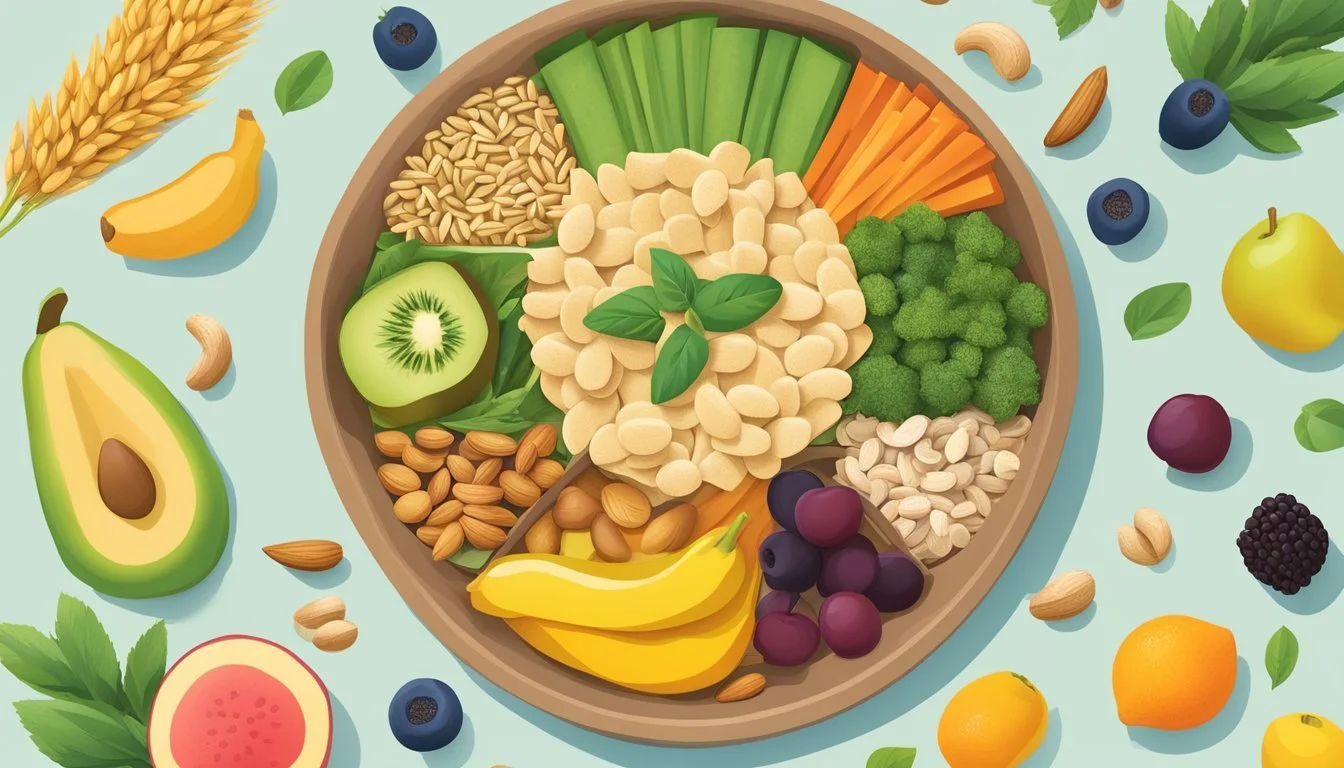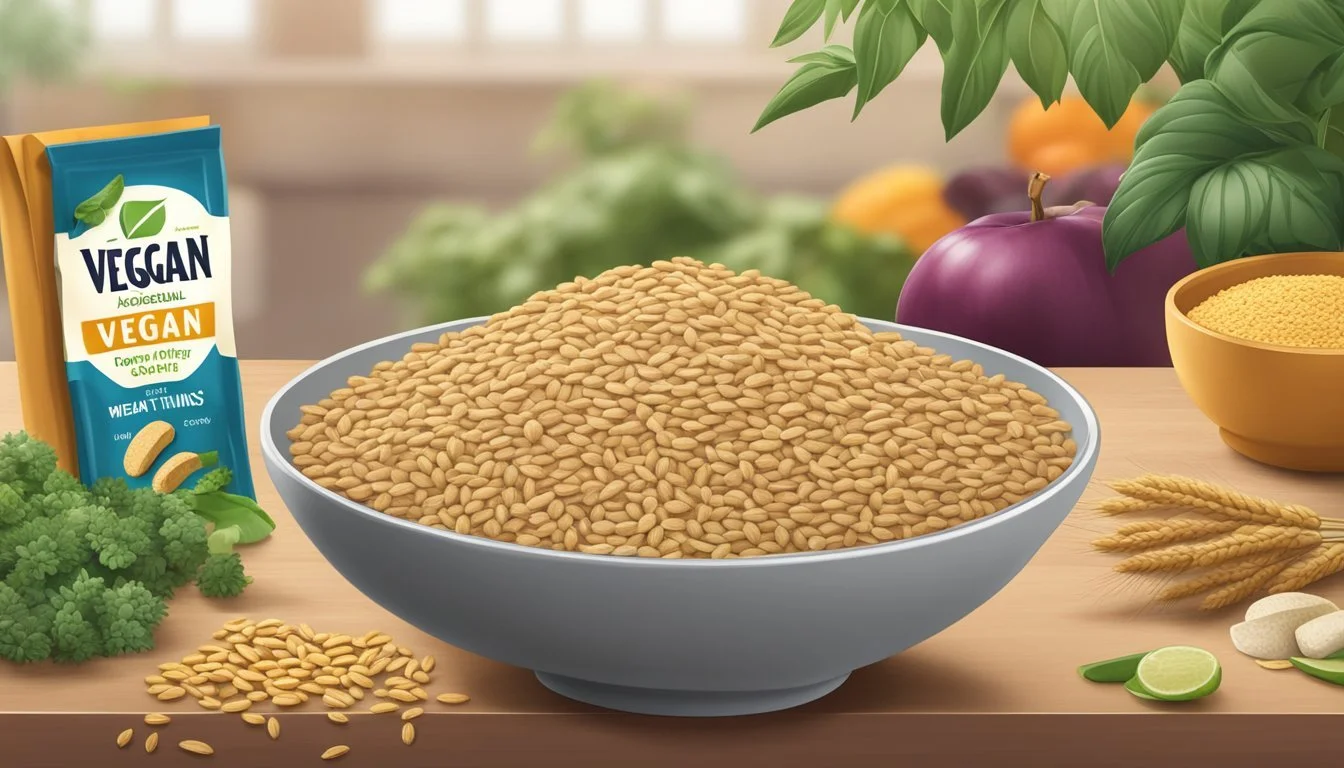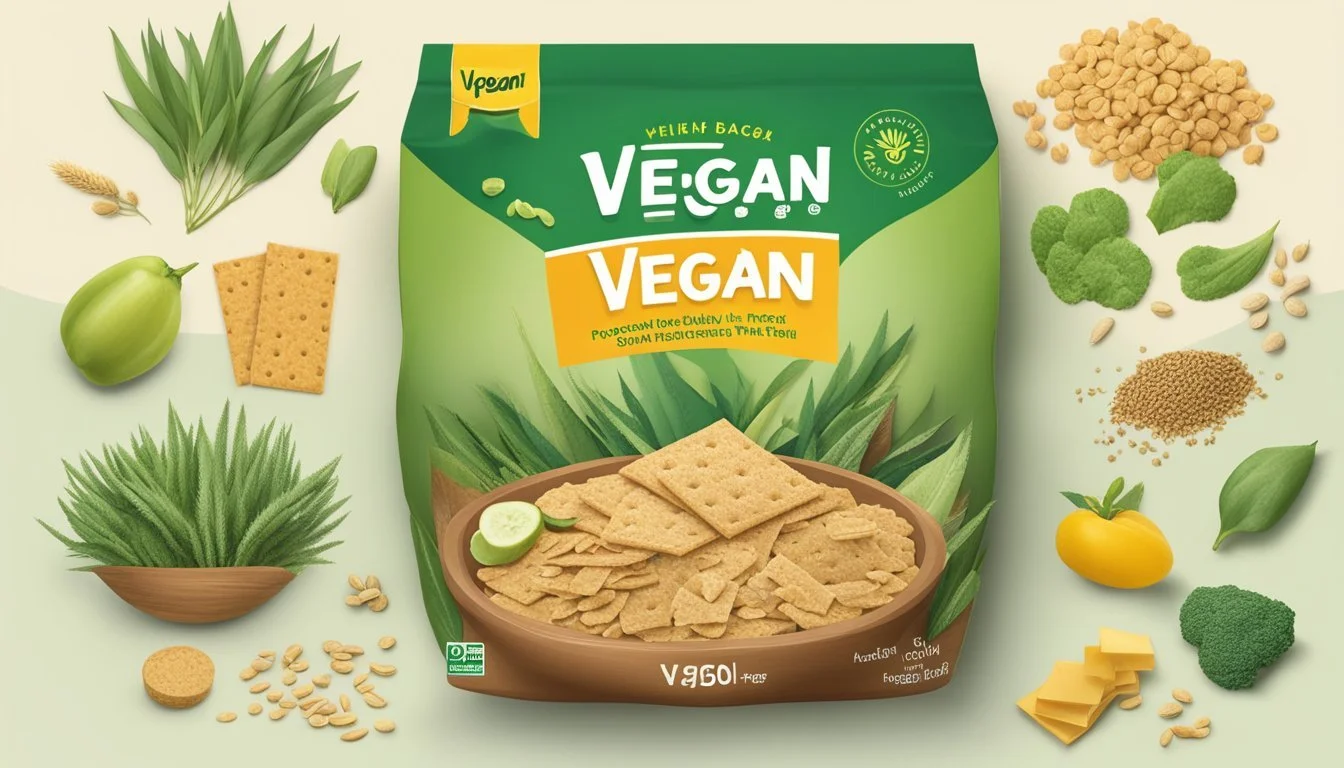Are Wheat Thins Vegan?
Unveiling the Snack's Ingredients
Determining whether Wheat Thins are vegan hinges on examining the ingredients used in their production. Original Wheat Thins are considered vegan because they are made from whole grain wheat flour, canola oil, sugar, salt, cornstarch, malt syrup made from corn and barley, and additional leaveners and preservatives, none of which are of animal origin. Vegans avoid animal products for ethical, health, or environmental reasons, and finding snacks that conform to a vegan diet can sometimes be challenging due to hidden ingredients derived from animals.
However, when it comes to flavored varieties, the vegan status of Wheat Thins becomes a bit more complex. Some of the flavored Wheat Thins are vegan-friendly, whereas others contain milk products or honey, which are not considered vegan. Consequently, individuals following a strict vegan diet must review the ingredient list of each flavor to ensure it aligns with their dietary choices. It is also important to consider that although the base ingredients may be vegan, cross-contamination with non-vegan products can occur during manufacturing.
What Are Wheat Thins?
Wheat Thins are a brand of snack crackers made primarily with whole grain wheat flour. Due to their crunchy texture and a wide variety of flavors, they are a popular snack option among consumers. Typically, Wheat Thins come in a distinctive square shape and boast a toasty, nutty taste, which lends itself well to both savory and sweet toppings, making them a versatile food choice for different occasions.
Nutritional Profile:
Primarily whole grain wheat flour
Canola or soybean oil
Sweeteners like sugar and malt syrup
Salt and leavening agents
Their ingredients are baked, resulting in a light, crispy texture. Wheat Thins are often considered a healthier alternative to traditional potato chips due to the inclusion of whole grains. The brand has marketed them not just as a standalone snack but also as a complement to meals, as part of appetizer spreads, or as a cracker for dips and cheeses.
Varieties: Authentic goodness in each variety, catering to assorted taste preferences:
Original: The classic flavor with simple ingredients.
Variety Flavors: Including options like Sundried Tomato and Basil, Spicy Buffalo, and Reduced Fat among others.
To cater to health-conscious customers, Wheat Thins also provide options with reduced salt content, such as the "Hint of Salt" variety.
Manufacturers often seek to align themselves with current dietary trends, and as such, most varieties of Wheat Thins are vegan-friendly, making them suitable for those following a vegan diet. However, consumers should always check the label as some flavors may contain milk or honey.
Understanding Veganism
Veganism is a dietary and lifestyle choice characterized by the exclusion of all animal products. A vegan diet includes a wide range of plant-based foods, such as fruits, vegetables, grains, legumes, nuts, and seeds. Vegans carefully select these foods not merely for health benefits but also for ethical and environmental reasons, aiming to minimize animal suffering and ecological damage.
Individuals following a vegan diet avoid:
Meat and poultry
Fish and seafood
Dairy products
Eggs
Honey
Gelatin and other animal-derived additives
In terms of nutrition, vegans must consider alternative sources for certain nutrients typically found in animal products. Essential nutrients like protein, calcium, iron, and vitamins B12 and D can all be obtained from plant-based sources. Vegans often consume:
Legumes as a protein and iron source
Fortified plant milk for calcium and vitamin D
Nutritional yeast for vitamin B12
Moreover, veganism is not limited to diet alone; it encompasses a broader lifestyle that avoids animal exploitation. This includes abstaining from clothing made of leather or wool, products tested on animals, and entertainment that uses animals.
Vegan Diet composition:
Food Category Examples Fruits Apples, bananas, berries Vegetables Leafy greens, root vegetables Grains Rice, oats, quinoa Legumes Chickpeas, lentils, tofu Nuts & Seeds Almonds, chia seeds, flaxseeds
A well-planned vegan diet can support a healthy lifestyle, provided that individuals remain mindful of their nutritional needs.
Ingredients Analysis
This section breaks down the ingredients found in Wheat Thins, with an emphasis on identifying which components are vegan-friendly and which ones may not be suitable for a vegan diet.
Whole Grain Wheat Flour
Whole grain wheat flour is the primary ingredient in Wheat Thins, providing the staple base for the crackers. It is a vegan ingredient derived from wheat kernels, containing all parts of the grain.
Original Flavor Profiles
The Original flavor Wheat Thins consist of:
Whole Grain Wheat Flour
Canola Oil
Sugar: Can sometimes be refined using bone char but isn't specified for this product.
Cornstarch
Malt Syrup: Derived from barley and corn, both of which are vegan.
Salt
Leavening: Including baking soda (sodium bicarbonate).
Preservatives: Like BHT for freshness.
Common Additives and Enrichments
Additives in Wheat Thins such as calcium phosphate and natural flavor are worth noting. Calcium phosphate serves as a leavening agent and is vegan. The term natural flavor can be ambiguous, and while it's often plant-based, it can include animal-derived ingredients. The sources of natural flavors in Wheat Thins are not specified.
Additional Flavors and Variants
Wheat Thins come in various flavors; some remain vegan, while others do not. Flavors like Multigrain, Hint of Salt, and Reduced Fat are generally vegan. However, flavors such as Ranch, Honey Mustard, Zesty Salsa, Spicy Buffalo, Chili Cheese, Sundried Tomato and Basil, and Smokey BBQ might contain non-vegan ingredients like milk, cheese, or honey.
Controversial Ingredients
The use of BHT as a preservative in Wheat Thins is controversial among health-conscious consumers, although it does not affect the vegan status. Sugar's vegan status is also debatable because bone char is sometimes used in the refining process, although this is not specified by the brand. Consumers seeking to avoid any potential animal exploitation should research or reach out to the manufacturer for clarification on these ingredients.
Nutritional Information
The nutritional content of Wheat Thins varies across different flavors. Original Wheat Thins provide a balance of fats and carbohydrates with minimal protein content. Understanding the specifics of their nutritional profile is important for those seeking vegan dietary options.
Calories and Fats
Original Wheat Thins contain approximately 140 calories per serving (about 16 crackers) with around 5 grams of fat, primarily from canola oil or soybean oil. The Reduced Fat variant lowers the fat content to about 3.5 grams per serving.
Original Wheat Thins
Calories: 140
Total Fat: 5 grams
Reduced Fat Wheat Thins
Calories: 130
Total Fat: 3.5 grams
Proteins and Carbohydrates
The protein content in Wheat Thins is relatively low, with Original Wheat Thins providing roughly 2 grams of protein per serving. They are composed mainly of carbohydrates, with one serving providing around 22 grams, and sugar making up a small proportion of this.
Original Wheat Thins
Protein: 2 grams
Carbohydrates: 22 grams
Sugars: Included within carbohydrates
Vitamins and Minerals
Wheat Thins are made with whole grain wheat flour, contributing to their fiber content, and are fortified with several B vitamins, such as niacin (Vitamin B3), thiamine mononitrate (Vitamin B1), riboflavin (Vitamin B2), and folic acid. They also contain calcium phosphate, which is added as a leavening agent.
Original Wheat Thins
Niacin (Vitamin B3)
Thiamine Mononitrate (Vitamin B1)
Riboflavin (Vitamin B2)
Folic Acid (Vitamin B9)
Calcium Phosphate (Leavening agent)
Allergy Information
When considering Wheat Thins for dietary purposes, understanding the allergen content is crucial for individuals with specific food sensitivities.
Identifying Common Allergens
Wheat: As the name suggests, Wheat Thins contain wheat flour, which is a primary allergen for those with wheat allergies or celiac disease.
Soy: Wheat Thins listings show that soybean oil is an ingredient. For individuals sensitive to soy products, it is important to note this ingredient, as it may cause allergic reactions.
Milk: Some flavors of Wheat Thins may contain milk derivatives such as whey or cheese flavors, posing a risk for persons with milk allergies.
Product labeling should always be checked for the most up-to-date allergen information. Individual sensitivity to these allergens should be discussed with a healthcare provider.
Environmental and Ethical Considerations
The impact of food products on the environment and ethical concerns are receiving increasing attention. Consumers have become more aware of how their dietary choices, especially when it involves items like Wheat Thins, affect more than just their health.
Packaging and Sustainability
Wheat Thins rely on packaging to keep the product fresh and protected. The main concern here is the environmental footprint of this packaging. Most snack foods use plastics or other materials that may not be easily recyclable. As for Wheat Thins, there is a consideration for the type of packaging material used and whether it incorporates BHT (Butylated Hydroxytoluene), an additive to preserve freshness. Transparency about whether the packaging contains any BHT or if it is made from recyclable materials is essential for consumers driven by sustainability.
Ethical Sourcing of Ingredients
In terms of sourcing ingredients, the focus is on whether the whole grain and other vegetables used in Wheat Thins are obtained through ethically managed supply chains. This includes evaluating if the growers are provided fair working conditions and wages. Moreover, a vegan product should confirm the absence of any animal products in its ingredients list. For a food item like Wheat Thins, the commitment to not including animal products is a fundamental requirement to meet vegan standards. Ethical sourcing also examines if the production processes adverse effects on the environment are minimized.
Comparing Wheat Thins to Other Vegan Snacks
Wheat Thins stand out in the snack aisle for their use of whole grain wheat flour, a vegan-friendly ingredient that appeals to those following a plant-based diet. A selection of Wheat Thins flavors are vegan, offering consumers a savory snack without animal-derived ingredients.
Other vegan snacks, such as vegetable chips or rice cakes, often utilize different ingredients to cater to the vegan market. For instance, vegetable chips might boast a mixture of root vegetables like sweet potatoes and beets, flavored with sea salt or herbs. These snacks typically are fried or baked and offer a variety of nutrients.
Here is a brief comparison highlighting key attributes:
Feature Wheat Thins Other Vegan Snacks Base Ingredient Whole grain wheat flour Variety (e.g., vegetables, rice, legumes) Texture Crispy, crunchy Varies (e.g., crunchy, puffed, crispy) Flavors Multigrain, Hint of Salt, etc. Herb-seasoned, sea salt, etc.
Rice cakes are another popular vegan snack, often made from puffed rice and praised for being low in calories. Unlike the rich, toasty flavor of whole grain in Wheat Thins, rice cakes offer a neutral palate that serves well as a base for toppings.
One should check labels, as some snacks may contain animal-derived ingredients such as honey or milk products. Snacks like Wheat Thins are clearly labeled and offer a variety of flavors that are confirmed vegan, such as the Original, Hint of Salt, and Sundried Tomato and Basil.
In comparison to other vegan snacks, Wheat Thins provide a reliable, satisfying, and flavorful option, complete with the benefits of whole grain. They fit into the vegan diet just as well as the eclectic mix of other plant-based snacks available on the market.
Frequently Asked Questions
This section of the article focuses on specific inquiries regarding the vegan status of Wheat Thins, exploring what ingredients may raise concerns and providing clarity on which are deemed non-vegan.
Addressing Vegan Concerns
Consumers often question whether Wheat Thins are suitable for a vegan diet. The Original Wheat Thins and several other flavors are indeed vegan-friendly, as they are made from plant-based ingredients. These ingredients include whole grain wheat flour, canola oil, sugar, cornstarch, malt syrup (from corn and barley), salt, and sometimes leaveners and preservatives. A key point for vegans is that the sugar used in Wheat Thins is not processed with bone char, making it acceptable for a vegan dietary standard.
Discussing Non-Vegan Ingredients
However, not all Wheat Thins flavors are vegan. Some contain milk, honey, or both, which are animal-derived ingredients and not suitable for vegans. Flavors like Ranch, Chili Cheese, and others can include:
Milk (in the form of cheese or casein)
Honey (used as a sweetener)
These ingredients disqualify such flavors from being considered vegan. When choosing Wheat Thins, one should read the labels carefully to ensure that none of these non-vegan items are included.
Conclusion
The investigation into the vegan status of Wheat Thins reveals important nuances. The original Wheat Thins are generally considered vegan since they contain plant-based ingredients such as whole grain flour, canola oil, sugar, salt, cornstarch, malt syrup, refiner's syrup, leaveners, and preservatives.
However, caution is advised for those following strict vegan diets, as certain flavors of Wheat Thins, like the 'Smokey BBQ' flavor, contain honey, which is not a vegan ingredient. Some flavored varieties also include milk products. Therefore, individuals should check the packaging and ingredient list of each flavor for non-vegan substances.
For those seeking confirmation, the packaging may display vegan labeling such as "suitable for vegans" or a certified vegan symbol, which helps identify vegan-friendly options.
In conclusion, while many Wheat Thins products abide by vegan standards, a definitive answer depends on the specific flavor variant and one's adherence to vegan principles. Consumers are encouraged to verify the ingredients of each product to ensure they align with their dietary choices.










